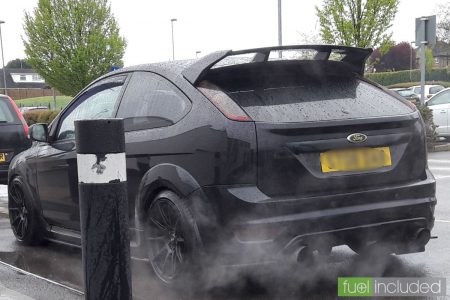Three years after Dieselgate, automakers are still exploiting ‘the lawful but awful ways’ to achieve the best possible scores for CO2 testing in the EU
When Volkswagen was caught cheating diesel emissions tests in 2015, one of the first actions its engineers took was to launch a secret project: to obtain cars from rival manufacturers and conduct tests on their emissions. Its aim was to find evidence of widespread cheating across the industry, so guilt could be spread around and penalties diluted, say two people inside the company.
The Volkswagen Scandal, in other words, might helpfully become the Car Scandal.
Vehicles from Fiat, Hyundai and others were tested for harmful nitrogen oxide emissions by VW engineers at the group’s Wolfsburg headquarters from late 2015 to early 2016. The engineers had a simple conundrum: VW had just admitted to equipping 11m cars with software to detect laboratory tests and enable them to enter a low-emissions mode. If VW’s best engineers found regulations so onerous that they resorted to deliberate fraud, what had its rivals done?
A third person in the company insists there was a more innocent explanation for the tests. Engineers uninvolved in the original cheating had to use rival cars as control variables to better understand their own sophisticated software — some of it supplied by third parties and used by rival brands. “We were not dirtying others’ hands to make our own look clean,” says this employee.
Volkswagen declined to comment on this previously unreported episode.
What the engineers found shocked them. Rival brands’ NOx emissions were considered “a complete disaster”. Performance on the road was “completely different to the technical data”, says a VW worker briefed on the results. The overall summary of whether rivals were also skewing emissions results was clear: “It’s not only VW who is cheating.”
What is unclear is whether rivals were deploying the same strategy as VW — using a “defeat device” to illegally trick regulators into believing its cars were green — or if they had simply become better at bending the rules on tests, a problem that still exists with petrol cars today, as the European Commission revealed last month when it disclosed the latest “tricks” carmakers were using to exploit loopholes for incoming 2020 emissions procedures.
The distinction is blurred but important. VW paid the consequences of crossing the line and cheating NOx emissions tests in the US. But the efforts of other carmakers to legally undermine testing for both NOx and CO2 in Europe have never resulted in real penalties.
“Legal optimisation was done on an industrial scale,” says Nick Molden, chief executive of Emissions Analytics, which conducts real-world driving emissions tests. “It became so ingrained in how cars were certified that the carmakers didn’t understand they had done something wrong . . . That’s the scandal in Europe: that these actions were not illegal.”
Read more: FT

